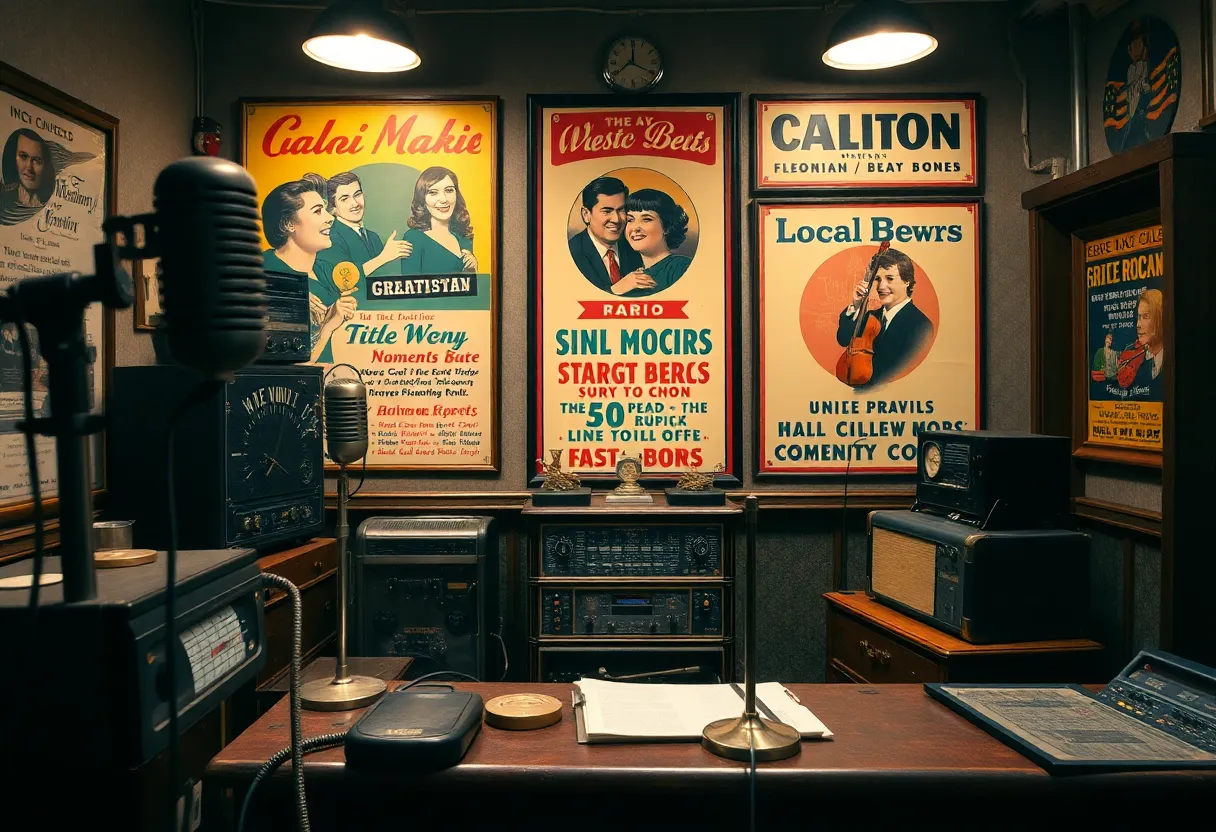News Summary
Chattanooga’s WDOD radio station, first launched in 1924, celebrates its 100th anniversary, reflecting on its rich history, local talent, and influence on community connection over the decades. From initial broadcasts to evolving formats, WDOD has played a crucial role in the city’s radio landscape, honoring the legacy of broadcasters and the joy of music.
WDOD: Celebrating a Century of Chattanooga Radio History
Chattanooga has a rich radio history dating back to April 13, 1924, when the airwaves first came alive thanks to Earl Winger Jr. and Norman Thomas from Ohio, who launched the city’s very first radio station, WDOD. These pioneering broadcasters applied for a license to operate a humble 50-watt station from a house on McCallie Avenue, sparking a journey that would echo across the decades.
The name WDOD stands for “Wonderful Dynamo of Dixie,” which perfectly captures the station’s mission to uplift and entertain the community. WDOD made its debut with an inaugural broadcast of a worship service from the First Presbyterian Church, showcasing the inventive spirit of the team who stretched a 150-foot microphone cable to make it happen. From those early beginnings, it set the stage for countless memorable moments in local radio history.
Early Highlights and Local Favorites
As the years went on, WDOD became a household name, bringing joy and entertainment to listeners throughout the city. Early broadcasts featured live organ concerts straight from the iconic Majestic Tivoli Theater, where the community gathered to hear their favorite tunes. One of the station’s most beloved hosts in the 1930s and 1940s was Chuck Simpson, who entertained listeners with programs like “Breakfast Time in Dixie” and the “WDOD Radio Playhouse.” He even broke ground with the first talk show, “Man on the Street,” which aired from the Hamilton National Bank building.
WDOD also became a springboard for local talent, including Baylor School graduate Gaylord McPherson, who spun tunes for a live variety show. These broadcasts captivated audiences, featuring notable performers such as George Goble, Archie Campbell, and the goofy yet charming duo of Homer and Jethro, who all left their mark on Chattanooga’s radio scene.
The Rise of Competition
In tandem with WDOD’s growth, other stations began to emerge in the bustling radio landscape. WAPO made its debut in 1936, quickly becoming synonymous with local country music and sports, thanks to sportscaster Gus Chamberlain, who delighted listeners with live interviews on his “Sportsman’s Hour Program.” WDEF followed suit on New Year’s Eve of 1940, introducing a dynamic broadcasting experience that would play a crucial role in shaping local radio for decades to come.
After WWII, radio faced new challenges with the rise of television, but it soon bounced back as rock and roll took center stage. Carlin French bought WDXB in 1956 and switched its format to include music and news—broadcasting 24 hours a day! The competition really heated up when WFLI appeared on the scene in 1961, providing listeners with an electrifying rock n’ roll vibe alongside news and sports. In response to declining ratings, WDEF AM transitioned to an FM station with a much clearer signal.
Evolution Through the Decades
Throughout the years, radio in Chattanooga continued to evolve. In 1964, under owner Cy N. Bahakel, WDOD embraced the country music craze. Fast forward to 1968, when Ted Turner acquired WAPO, rebranding it as WGOW and making it home to popular hosts like Chickamauga Charlie.
The 1970s introduced the FM band to the airwaves, showcasing a variety of musical formats including beautiful music and rock. WDOD FM diversified its offerings until it found its sweet spot with “Hits 96.” As the industry transformed, local programming faced competition from syndicated content, but WGOW FM remained committed to providing live shows, standing out amidst the changes.
Honoring the Past
Today, the radio heritage in Chattanooga is a vibrant tapestry woven from countless stories and the memories of dedicated broadcasters. The contributions of icons like Luther Masingill, who entertained audiences continuously for an unparalleled 74 years at WDEF before passing in 2014, are celebrated as part of the city’s legacy. Many of these remarkable figures have earned their place in the Tennessee Radio Hall of Fame, reminding us of the integral role local voices play in connecting communities.
As we celebrate a century of WDOD, the essence of this pioneering station lives on through the recollections and stories shared by listeners and broadcasters alike. Chattanooga’s radio history is a testament to the power of authentic connections, creativity, and the joy of music—echoing through the airwaves and into the hearts of many.
Deeper Dive: News & Info About This Topic
HERE Resources
Chattanooga Residents Urged to Stay Prepared as Wildfire Threats Continue
Barrett Firearms Manufacturing to Expand in Rutherford County
Barrett Firearms Expands Operations in Rutherford County
Chattanooga Officer Arrested on Assault and Vandalism Charges
National Ag Day 2025: Celebrating Agriculture’s Economic Impact
Tragic Developments in Missing South Dakota Woman Case
Henry County High School DECA Students Shine at State Competition
Chattanooga Sees Recent Surge in Criminal Activity
Collegedale Takes Strong Stance Against Human Trafficking
Chattanooga Man Arrested for Unintentional Drug Drop at School
Additional Resources
- Times Free Press: Local History – A Skilled Team Made WDEF a Success
- UT Sports: Baseball Preview – Vols Set for Super Regional Showdown
- Radio World: The Man With Sunshine in His Voice – Remembering Luther Masingill
- News Channel 9: History of WFLI Radio Chattanooga, Tennessee
- Chattanoogan: WDOD AM – Gone But Not Forgotten
- Wikipedia: History of Radio in the United States
- Encyclopedia Britannica: Radio
- Google Search: Chattanooga Radio History
- Google Scholar: Radio History Chattanooga
- Google News: Chattanooga Radio

Author: STAFF HERE CHATTANOOGA WRITER
The CHATTANOOGA STAFF WRITER represents the experienced team at HEREChattanooga.com, your go-to source for actionable local news and information in Chattanooga, Hamilton County, and beyond. Specializing in "news you can use," we cover essential topics like product reviews for personal and business needs, local business directories, politics, real estate trends, neighborhood insights, and state news affecting the area—with deep expertise drawn from years of dedicated reporting and strong community input, including local press releases and business updates. We deliver top reporting on high-value events such as Riverbend Festival, Chattanooga Oktoberfest, and Moon River Festival. Our coverage extends to key organizations like the Chattanooga Area Chamber of Commerce and United Way of Greater Chattanooga, plus leading businesses in manufacturing, insurance, and utilities that power the local economy such as Volkswagen Chattanooga, BlueCross BlueShield of Tennessee, and EPB. As part of the broader HERE network, including HEREBristol.com, HEREKnoxville.com, HEREMemphis.com, and HERENashville.com, we provide comprehensive, credible insights into Tennessee's dynamic landscape.





